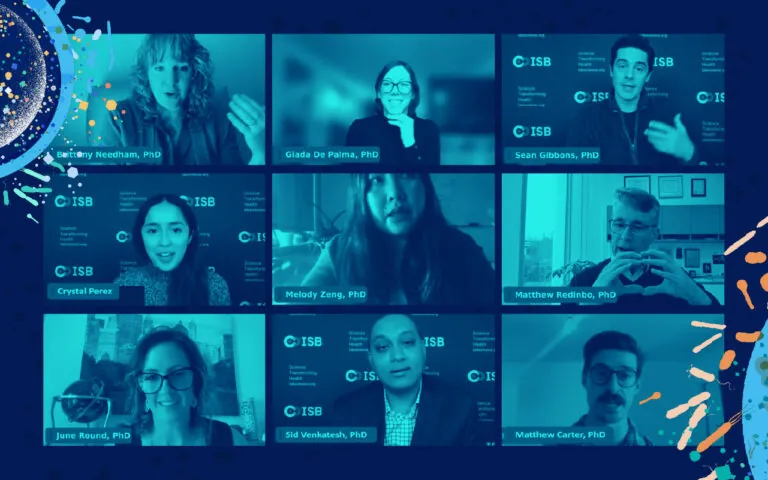RECOVER 2.0: New Insights and Next Steps in Long COVID Research
Researchers from the NIH-funded RECOVER study shared new insights on the risks of Long COVID, autoimmune links, and upcoming clinical trials during ISB’s July Town Hall.
The Institute for Systems Biology (ISB) recently hosted its second 2025 virtual Town Hall to share Long COVID updates from the ongoing NIH-funded RECOVER study.
Dr. Jason Goldman of Swedish Providence, standing in for ISB President Dr. Jim Heath, led the discussion and outlined the next phase of the study, known as RECOVER 2.0. This extension will follow more than 5,000 participants nationwide – including nearly 3,000 with Long COVID – to better define long-term disease trajectories, investigate underlying biological mechanisms, and explore links to chronic conditions such as neurocognitive impairment, cardiopulmonary dysfunction, and autoimmune diseases.
Julie Wallick (Swedish) and Dr. Katherine Tuttle (Providence) shared findings from a large RECOVER data analysis examining sex differences in Long COVID risk. They reported that females, particularly those aged 40-54, face a higher likelihood of developing Long COVID compared to males, with pregnancy and certain health factors influencing risk. Dr. Goldman also discussed recently published work showing a clear association between severe COVID-19 infections and an increased risk of developing autoimmune diseases over time.
The event also featured study coordinators Lea Dahlke and Ethan Pascual from Cedars-Sinai, who reflected on their close collaboration with participants in the RECOVER trials. They highlighted how patient experiences and engagement are shaping ongoing research and clinical approaches to Long COVID.
The Town Hall concluded with a robust Q&A session, where participants asked about biomarkers, repeat infections, rehabilitation, and the latest clinical trials targeting Long COVID symptoms. While no single treatment currently exists, researchers emphasized ongoing trials investigating antiviral, anti-inflammatory, and self-management approaches aimed at improving patient outcomes.
The session underscored the progress being made in unraveling the complexities of Long COVID, the essential contributions of study participants, and the commitment of the RECOVER network to advancing understanding and care for those affected.
You can watch a full recording of the event here, or by clicking play on the video above.


